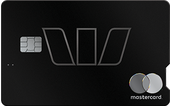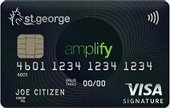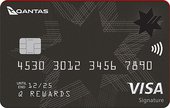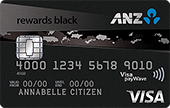There was a time when a gold card was aspirational, only to be kicked of its perch by the platinum card. But a black card is now the ultimate personal card.
What is a black credit card?
Although it also describes the colour of the card, the word "black" actually refers to the card’s status when compared with other cards. A black card is higher up the ladder than gold and platinum, comes with more complimentary benefits, often has a higher and less restricted loyalty points earning rate, and inevitably costs more in terms of the annual fee. There are black level credit cards for personal and business use.
Some issuers may not use the word "black" in the card’s name, preferring terms like Premium, Diamond, Prestige, Premier, and more recently, Signature, but the card’s distinctive black livery is always an indication of its status and likely benefits. Some black credit cards are actually made of metal.
Being able to bring one out of your wallet lets you make a statement about your financial status as well as enjoy higher earning rates for rewards points and better complimentary perks.
What are the benefits of a black credit card?
Benefits vary significantly between black credit cards, but you can expect to get the following advantages with nearly every black card:
- Access to higher credit limits
- Substantial sign up bonus offer
- Higher earning rate per dollar for rewards points
- No points cap, or a generous cap
- Complimentary travel insurance
- Complimentary shopper’s insurance (extended warranty, purchase protection, price guarantee scheme)
- Personal concierge service
High end black card benefits
Black credit cards with annual fees at the top of the range will usually come with some of the following additional perks:
- Airport lounge access, sometimes with full membership or via passes
- Free domestic return flight annually
- Free airport transfers
- Annual travel credit voucher
- Better insurance cover
- Luxury hotel group membership, free nights, room upgrades
- Access to prestige shopping, golf, and other experiences
- Other invitation-only events
- Priority service for account queries, travel, concierge
It’s important to choose your black card carefully to make sure it comes with features you’ll use, rather than paying for benefits that are worthless because they don’t match your lifestyle.
If you’re going to switch to a black credit card, you may as well derive every possible ounce of advantage from the changeover. Switching to a new bank or issuer for your black card could allow you to gain in two ways. You could:
- Score a swag of sign up bonus points – possibly as many as 100,000 points if the offers are there;
- Bring your old card balance across to the new card and pay no interest on the balance for an extended period, perhaps as long as 20 months.
In practice you’re more likely to be offered bonus points than a balance transfer with a black card, but it’s also worth watching out for introductory low or zero interest rates on purchases, or reduced first-year annual fees, both of which are offered from time to time.
How much do black credit cards cost?
Be prepared to pay a much higher than average annual fee for a black credit card. The current median fee lies in the range $300 to $400 p.a.
Although the annual fee for a black card is high, astute cardholders will be able to derive benefits whose value is far in excess of the fee charged. You don’t need to be a particularly big spender to recover the value of the annual fee in rewards points alone, provided you channel most of your spending through your card rather than using cash or other methods. And regular travellers will know the value of complimentary benefits like travel insurance and other insurance policies plus airport lounge passes, which in total can be worth around $1,500 p.a.
Don’t expect a low interest rate to accompany your black credit card. The interest charged on overdue purchase balances is likely to be at least 20% p.a., with the cash advance rate being even higher.
In fact, it doesn’t make sense to choose a black credit card if you don’t plan to use it for every possible item of expenditure, and then pay off the balance in full at the end of each month. So the interest rate is only going to be an issue if you hit a temporary liquidity problem, or miss the payment due date by accident.
It’s simple: card issuers don’t market their black cards to people looking for low interest rates.
What's required to qualify for a black credit card?
Black credit cards are intended for higher income earners, relatively big spenders who make most of their purchases using a credit card. To qualify for a black credit card, you'll generally need an above average income and a very good / excellent credit score.
Target market
Banks are targeting applicants who are regular travellers for either business or leisure with black credit card offers. The extra rewards points they can earn, and additional complimentary benefits they can make use of, allow them to recoup far more than the value of the high annual fee.
Income
The minimum income required varies between banks and cards. Expect it to be in the range of $65,000 - $70,000 minimum, with some requiring more. If you cannot prove your income, do not apply.
Credit score
The credit score for a black credit card is an important factor. A good or excellent credit score will be required, which implies no missed payments or recent bad credit. Check what your credit report contains before applying.
Is a black credit card worth it?
If you are unsure whether or not a black credit card is worth paying for, there are a few things you can consider when weighing up your options.
- Can you hit the spend target to get the sign up bonus? Will you have to spend on things you wouldn't have just to get the bonus points?
- Will you pay the balance off each month? If you are not in a position to clear the balance, interest charges can quickly negate the value of the rewards and benefits available.
- Will you be able to use the card regularly? Will you be able to run enough spend through the card to earn enough points to justify the fee? Consider that some stores do no accept American Express.
- Will you use the features on offer? Black credit cards typically offer several complimentary insurances, airport lounge access, priority boarding, status, etc. Do you think you'll use them all, or can you make do with less?
- Can you replace other products you already have? For example, does a black card combine the features of several other cards so you can simplify your finances and reduce waste? Can you replace other paid memberships and subscriptions with a new card?
What to consider when comparing black credit cards
These cards are packed with benefits, so much so that their comparison can be a job in itself. Here's what to look at.
- Sign up bonus. Most black credit cards have a substantial welcome bonus, often amounting to more than 100,000 points. However, you should check what the terms and conditions are for the offer since they vary between cards. Banks typically require a certain amount of money to be spent on the card within 90 days of activation. Also consider that some cards award bonus points on the anniversary of opening your account, which can be very beneficial in the longer view.
- Earn rate. Unsurprisingly, the earn rates for black credit cards are higher. It may not seem like much, but an extra 0.5 points per $1 spent can make a significant difference to your rewards account over time. Check what restrictions there may be, if any, on how many points you can earn. Black credit cards usually have the most liberal and least restrictive policies on caps and tiers, but it is worth checking the detail on this, especially if you are a high spender.
- Rewards program. If you have committed to a rewards program already, then the decision is easy. If not, consider things like where you travel most regularly, what airlines you prefer to fly with domestically and internationally, which lounge network you prefer, etc. If you are ambivalent or just prefer flexibility over all else, then perhaps consider a credit card that lets you earn points that can be transferred out, e.g. Membership Rewards, CommBank Awards, NAB Rewards, ANZ Rewards, Altitude Rewards, Amplify Rewards, etc.
- Annual fee. Since it's going to cost hundreds of dollars a year just to keep your account open, you should be sure that the higher points earn rate, welcome bonus, and lifestyle benefits are worth it for you.







